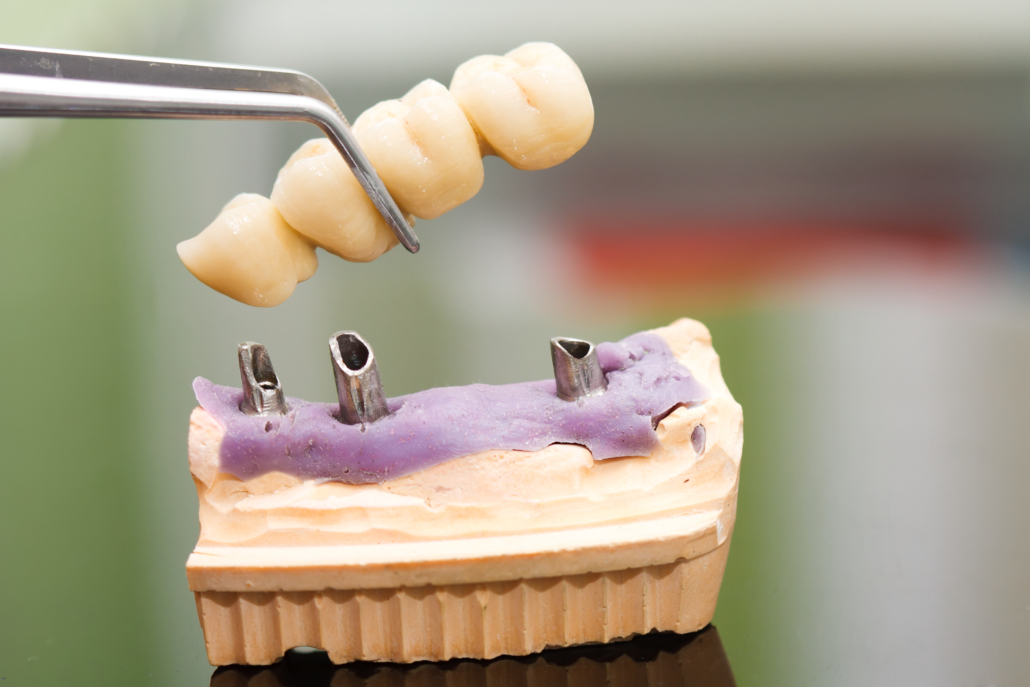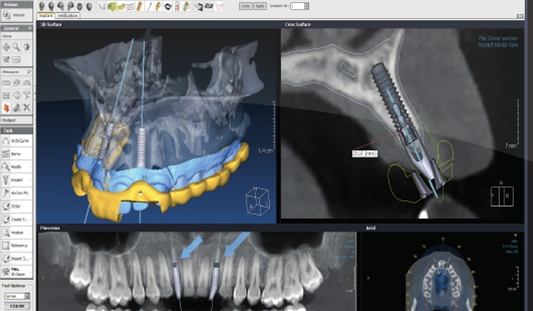Implantology is a very widespread and increasingly frequent dental rehabilitation technique, the success of implantology has now very high rates, but some minor complications can occur such as:
- nerve pain;
- bleeding;
- sensorineural disorders.
The possibility that this type of complication can occur or that even the combination of them occurs is very low, however it is good to know how to deal with any complications.
Post-traumatic trigeminal neuropathic pain
What we commonly refer to as nerve pain following implant surgery may actually be post-traumatic trigeminal neuropathic pain.
The main symptoms of post-traumatic trigeminal neuropathic pain are:
- persistent pain following insertion of the dental implant;
- sensory abnormalities;
- difficulty in chewing and speaking.
Nerve pain is classified as chronic when it lasts for more than three months. The definition of “chronic” for the scientific community is attributed to pain that occurs for more than 15 days a month, lasting more than 2 hours a day for at least 3 months.
Nerve pain can therefore have a potential impact on the patient’s quality of life.
How to manage nerve pain after inserting dental implants
In a recent study published in the Journal of the American Dental Association, a group of researchers focuses on the causes, methods of prevention, treatment and management of post-traumatic trigeminal neuropathic pain.
The researchers estimated that the incidence rate of nerve pain following implant surgery varies from 0.5% to a maximum of 37%.
Chronic pain in the trigeminal nerve can be due to direct or indirect trauma.
Direct trauma may include preparation for the implantation site or osteotomy, while there are few traumas due to the insertion of the implant itself.
Indirect trauma, on the other hand, could include the extrusion of debris into the lower alveolar canal, hemorrhage and inflammation.
The prevalence of haemorrhage-induced nerve injury is approximately 24%.
Preventing nerve injuries in implantology
Nerve injuries related to implantology can be avoided and therefore pain in the trigeminal nerve can be predictable.
Pre-operative phase: implant planning
To avoid any type of complication, implantology planning is practically essential. Thanks to sophisticated software, the dentist will be able to evaluate the type of incision, the type of surgery, the implant technique to be used and the type of implants to be inserted. Implant planning minimizes the risk of causing nerve injury.
Surgical phase: the operating microscope
For patients with complex clinical cases and at risk of complications, the use of state-of-the-art tools such as the operating microscope and the skill of the dentist who performs the surgery can further reduce the risk of injury thanks to the millimeter precision with which it is inserted. the plant.
Treatment of trigeminal nerve pain
Management of trigeminal nerve pain includes:
- pharmacological therapy;
- surgical interventions;
- complementary therapies.
Prompt recognition is critical to preventing the course of chronic irreversible neuropathy, but fortunately most injuries are preventable through pre-operative evaluation.


















